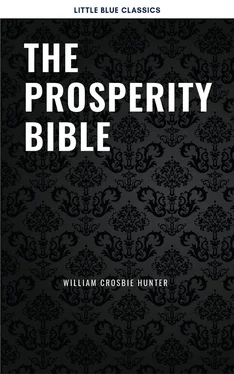Lao Tzu - The Prosperity Bible - The Greatest Writings of All Time On The Secrets To Wealth And Prosperity
Здесь есть возможность читать онлайн «Lao Tzu - The Prosperity Bible - The Greatest Writings of All Time On The Secrets To Wealth And Prosperity» — ознакомительный отрывок электронной книги совершенно бесплатно, а после прочтения отрывка купить полную версию. В некоторых случаях можно слушать аудио, скачать через торрент в формате fb2 и присутствует краткое содержание. ISBN: , Жанр: Языкознание, Критика, на английском языке. Описание произведения, (предисловие) а так же отзывы посетителей доступны на портале библиотеки ЛибКат.
- Название:The Prosperity Bible: The Greatest Writings of All Time On The Secrets To Wealth And Prosperity
- Автор:
- Жанр:
- Год:неизвестен
- ISBN:9782291075400
- Рейтинг книги:4 / 5. Голосов: 1
-
Избранное:Добавить в избранное
- Отзывы:
-
Ваша оценка:
The Prosperity Bible: The Greatest Writings of All Time On The Secrets To Wealth And Prosperity: краткое содержание, описание и аннотация
Предлагаем к чтению аннотацию, описание, краткое содержание или предисловие (зависит от того, что написал сам автор книги «The Prosperity Bible: The Greatest Writings of All Time On The Secrets To Wealth And Prosperity»). Если вы не нашли необходимую информацию о книге — напишите в комментариях, мы постараемся отыскать её.
CONTENTS:
1. Napoleon Hill – Think and Grow Rich
2. Benjamin Franklin – The Way to Wealth
3. Charles F. Haanel – The Master Key System
4. Florence Scovel Shinn – The Game of Life and How to Play it
5. Wallace D. Wattles – How to Get What You Want
6. Wallace D. Wattles – The Science of Getting Rich
7. Wallace D. Wattles – The Science of Being Well
8. Wallace D. Wattles – The Science of Being Great
9. P.T. Barnum – The Art of Money Getting
10. Dale Carnegie – The Art of Public Speaking
11. James Allen – As A Man Thinketh
12. James Allen – From Poverty to Power
13. James Allen – Eight Pillars of Prosperity
14. James Allen – Foundation Stones to Happiness and Success
15. James Allen – Men and Systems
16. James Allen – Above Life's Turmoil
17. James Allen – The Life Triumphant
18. Lao Tzu – Tao Te Ching
19. Khalil Gibran – The Prophet
20. Orison Swett Marden & Abner Bayley – An Iron Will
21. Orison Swett Marden – Ambition and Success
22. Orison Swett Marden – The Victorious Attitude
23. Orison Swett Marden – Architects of Fate; Or, Steps to Success and Power
24. Orison Swett Marden – Pushing to the Front
25. Orison Swett Marden – How to Succeed
26. Orison Swett Marden – Cheerfulness As a Life Power
27. Marcus Aurelius – Meditations
28. Henry Thomas Hamblin – Within You is the Power
29. William Crosbie Hunter – Dollars and Sense
30. William Crosbie Hunter – Evening Round-Up
31. Joseph Murphy – The Power of Your Subconscious Mind
32. Ralph Waldo Emerson – Self-Reliance
33. Ralph Waldo Emerson – Compensation
34. Henry H. Brown – Concentration: The Road to Success
35. Henry H. Brown – Dollars Want Me
36. Russell H. Conwell – Acres of Diamonds
37. Russell H. Conwell – The Key to Success
38. Russell H. Conwell – What You Can Do With Your Will Power
39. Russell H. Conwell – Every Man is Own University
40. William Atkinson – The Art of Logical Thinking
41. William Atkinson – The Psychology of Salesmanship
42. B.F. Austin – How to Make Money
43. H.A. Lewis – Hidden Treasure
44. L.W. Rogers – Self-Development and the Way to Power
45. Douglas Fairbanks – Laugh and Live
46. Douglas Fairbanks – Making Life Worth While
47. Sun Tzu – The Art of War
48. Samuel Smiles – Character
49. Samuel Smiles – Thrift
50. Samuel Smiles – Self-Help












